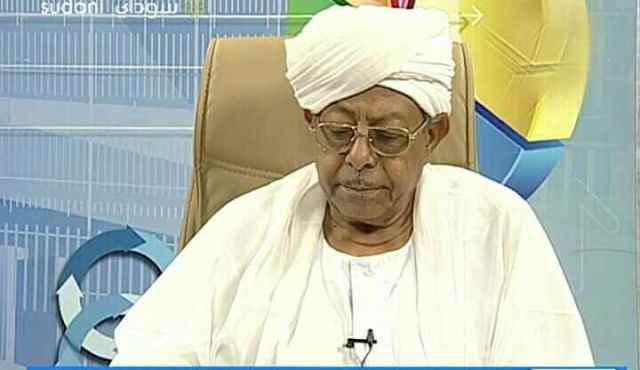An Expert Draws Road Map to Revive Sudanese Pound

Sudan Events – Nahid Oshi
Economist Abdullah Al-Ramadi has linked the improvement of the value of the Sudanese pound against foreign currencies on eliminating the rebel militia that destroyed the country’s productive sectors. He said in a statement to “Sudan Events” that the continuing decline of the pound was due to the prolonged war for more than a year, and that the targeting that Sudan suffered from in relation to the security situation was a targeting intended to destroy economic capabilities, especially productive capabilities, and to create chaos in this way and instability with the lack of security and security in the country, which causes the lack of a suitable climate for the production process. He added, “The first thing that the rebellion targeted, under external directives, was the production processes and the productive capacity of the Sudanese economy until production was disrupted.” Al-Ramadi stressed that the war represents an attack on Sudan to first disrupt it and destroy all capabilities, as it targeted the production facilities, especially the industrial zone. The major projects in Bahri and all the productive projects until the productive forces were disrupted. The destruction also included factories that were vandalized, the looting of raw materials in the warehouses, and tampering with the infrastructure until the problem worsened further. Bridges and roads were demolished and facilities and installations were destroyed, indicating that the sabotage was systematic and deliberate, leading to economic deficit. About providing the country’s needs so that imports increase at the expense of production and exports, as there has become a deficit in meeting local needs, which has increased the need for imports from abroad, and this makes the demand for foreign currencies increase in light of the economy’s weak ability to produce and export to obtain foreign currencies. He said that the situation remained as it was. It is a weakness for the economy and an empowerment for the rebel forces.
He confirmed that the rebel militia continues to destroy and sabotage a year after the war. Al-Ramadi appreciated the valor of the armed forces, and said that they had performed well in operations, breaking the back of the rebellion and achieving victories, but the attack was of a magnitude that could not be avoided and the destruction compensated for in a short period, and the armed forces were still busy cleaning up what remained of the rebel enclaves. He said that the attack was major on the Sudanese economy and production facilities have been disrupted, so the economic situation is still crisis and the need for imports is increasing. There has been a shortage in obtaining foreign currencies in exchange for compensating local production, and Sudan is still importing many necessities in addition to the lack of security.
He said, “The security breaches must first be eliminated before trying to repair the infrastructure because it will be destroyed again.”
Stressing the need to eliminate the rebellion, after which attention will shift to the economic aspects and an attempt to compensate and restore what was destroyed in production facilities. He said, “Gradually, the production process will increase and production will increase, thus reducing the demand for imported goods, which will lead to a decrease in demand for foreign currency, which will be met by an export of local products, which will increase the country’s ability to obtain foreign currencies, and thus the situation will be corrected so that the export will be more than the import, and thus the need to foreign currency will decrease”, and the situation of the Sudanese pound will improve and the whole situation will improve.



